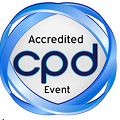Olabisi Ojo
Albany State University, USA
Title: Strengthening molecular microbiology education for pathogen detection and surveillance in a scientifically resource poor setting
Biography
Biography: Olabisi Ojo
Abstract
Pathogen surveillance is at the heart of effective and meaningful infectious disease control efforts globally. The incorporation of molecular techniques in pathogen surveillance has revolutionized our understanding of infectious disease dynamics. Current trends in the detection and control of pathogens have benefited from the development of molecular tools. Importantly, these tools produce fast and portable data/datasets that compare globally, especially with the availability of cutting edge cyber infrastructure applicable to biomedical sciences. Obafemi Awolowo University and Albany State University, under the Carnegie African Diaspora Fellowship Program organized a workshop on Pathogen Genomics and Surveillance that targeted graduate students, medical laboratory scientists, resident doctors and faculty in the biomedical/microbial sciences. We screened a total of 125 applications based on criteria such as enrollment in a graduate program, strong presentation of ongoing/proposed research project and active involvement in pathogen research. Workshop included the delivery of lectures on genomics and molecular detection of pathogen groups (bacterial, fungal, viral, parasitic and neglected tropical diseases) and hands-on laboratory sessions focused on pathogen gene detection using PCR, across-pathogen molecular epidemiological techniques and associate analytical tools. About 41% of the participants were current prospective PhD students. 28% were current PhD students; 9% were faculty or instructors in microbial sciences; 16% were resident doctors (fellows), while 6% were medical laboratory scientists. The over 42 participants were administered pre- and post- workshop assessments. Over 90% of participants demonstrated good understanding of the concepts. The workshop also fostered increased networking and new collaborating vigor among the represented microbial sciences community.

